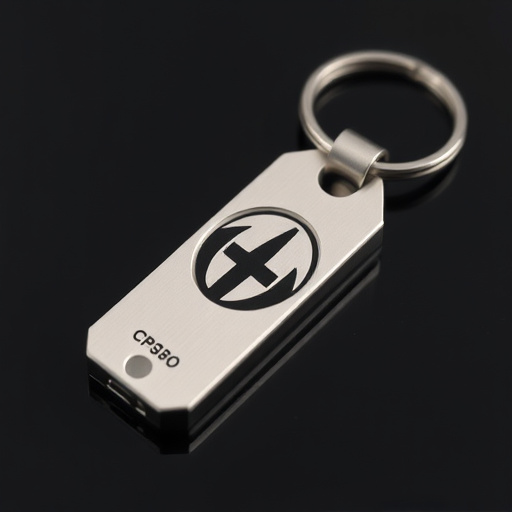Metal keychain defense tools, despite legal variations across US states, offer a convenient self-defense option. Legalities depend on state regulations regarding permit requirements, tool types, and size restrictions. Users must stay informed to avoid legal issues, choosing tools aligned with local laws while considering their safety needs. Their effectiveness is tied to design constraints, emphasizing responsible carrying and adherence to legal carry laws.
“Discover the power of self-defense with metal keychain defense tools—a compact, legal carry option gaining popularity. This comprehensive guide explores the protective keyring device’s legal framework across various states, empowering you to make an informed choice. From understanding these tools’ capabilities to their benefits and limitations, we navigate the intricacies. Learn how to select the right metal keychain for your needs and stay safe with this innovative, legally sanctioned defense mechanism.”
- Understanding Metal Keychain Defense Tools
- Legal Framework for Carry in Different States
- Choosing the Right Protective Keyring for You
- Benefits and Limitations of Carrying a Defense Tool
Understanding Metal Keychain Defense Tools
Metal keychain defense tools, also known as keyring self-defense devices, are compact and easily portable options for personal safety. These tools typically consist of a metal ring attached to a keyring, featuring sharp edges or a pointed end designed for self-defense. Their small size makes them convenient for everyday carry, allowing users to protect themselves in various situations.
The legality of such devices varies across different states, so it’s essential to understand the local regulations before considering their possession. In many areas, metal keychain defense tools are permitted as long as they meet specific criteria, such as having a certain level of force and being designed primarily for self-defense rather than offensive purposes. Staying informed about local laws ensures legal carry and empowers individuals to take proactive measures for their safety.
Legal Framework for Carry in Different States
In the United States, the legal framework for carrying metal keychain defense tools varies significantly from state to state. Understanding these differences is crucial for individuals looking to legally protect themselves while on the go. Some states, like Texas and Florida, allow open carry of certain self-defense tools without a permit, making them popular choices for those seeking quick access to protection. Other states, such as New York and California, have stricter regulations, often requiring permits or specific types of licenses for open or concealed carry.
The legal landscape becomes even more nuanced when considering different types of metal keychain defense tools. For instance, small pepper spray devices or personal stun guns might be permitted in some states but not others. It’s essential to research and comply with local laws to avoid legal repercussions. Additionally, many states have specific restrictions on the size, shape, and capacity of self-defense weapons, further complicating matters. Knowing these details is key to ensuring that your metal keychain defense tools remain legally obtainable and usable in the states where you travel or live.
Choosing the Right Protective Keyring for You
When selecting a protective keyring device, consider your specific needs and preferences. Look for durable materials like metal, ensuring it’s legally permitted as a defense tool in your state. A robust design with sharp edges or a reliable self-defense mechanism can make all the difference.
Match your choice to scenarios you anticipate. For everyday carry, a compact yet sturdy option may suffice. If you require more protection, opt for models featuring additional tools like pepper spray or emergency whistles. Stay informed about local regulations regarding self-defense devices, ensuring you choose a metal keychain defense tool that aligns with legal requirements.
Benefits and Limitations of Carrying a Defense Tool
Carrying a metal keychain defense tool can offer several benefits for personal safety, especially in legal carry states. These tools serve as a quick and accessible means of self-defense, allowing individuals to protect themselves in various situations, such as unexpected attacks or emergencies. Their compact size makes them easily concealable on a keyring, ensuring you’re always prepared without drawing unnecessary attention. This accessibility can provide peace of mind, knowing that a potential threat can be deterred or neutralized with minimal effort and without the need for more bulky self-defense items.
However, there are limitations to consider. Not all metal keychain defense tools are effective in real-life scenarios due to their size and design constraints. While they may provide a psychological deterrent, their limited reach and force can make them less useful in close-quarters combat or against larger assailants. Additionally, legal carry laws vary across states, and what is permitted must be strictly adhered to ensure compliance and avoid legal repercussions. Users should also be mindful of public safety, responsible carriers, and the potential for misuse, especially when carrying any form of defense tool.
The integration of metal keychain defense tools as legal carry items in various states offers individuals an added layer of personal safety. Understanding both the legal framework and the benefits of these devices is crucial for those seeking to empower themselves. By choosing the right protective keyring, users can leverage its advantages while being mindful of limitations. Staying informed about state laws regarding metal keychain defense tools is essential for responsible and legal self-defense.
